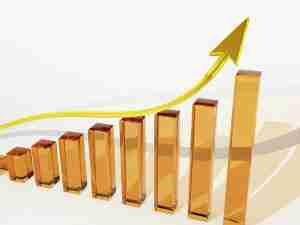Venezuelan Opposition Calls for National Strike, Protests
By: | Oct 26 2016 at 05:38 PM | International Trade
Venezuela’s opposition upped the ante in efforts to unseat an unpopular president, calling a nationwide strike for Friday and a protest march to the presidential palace next week if the government fails to allow a recall referendum to proceed.
“Either the government restores the constitution, or all Venezuelans will go to the palace,” opposition state governor Henrique Capriles told hundreds of thousands of supporters at a rally in Caracas on Wednesday.
The prospect of Friday’s strike and further marches once again puts Venezuela on tenterhooks, just days after President Nicolas Maduro’s agreement to Vatican-mediated talks with the the opposition coalition, known as the MUD, appeared to diffuse tensions. Wednesday’s rally cast fresh doubt that any agreement between the country’s dueling political factions can be reached.
“Things are changing in Venezuela every day,” Carlos Romero, a political scientist at Central University of Venezuela, said. “A train crash between the government and the opposition is brewing, the question is when and if it can be avoided.”
While the talks are scheduled to begin Sunday on Margarita Island, the opposition alliance has said it will only participate if the dialogue is held in Caracas. Capriles on Wednesday renewed that requirement, promising more protests if the government ignored the MUD’s demand to allow the recall referendum against Maduro’s rule to go forward.
“On Sunday we’re not going to Margarita, but Maduro wants to go to the beach,” Capriles said. “You rectify the constitutional order, or I convene all of Venezuela to march Nov. 3.”
The renewed call to the streets drew loud cheers from the sea of supporters, many of whom have voiced frustration with the planned opposition-government talks.
“People are upset, they took away our vote; people who never marched are here today,” said Xiomara Rangel, a 65-year-old retired fashion designer. Protesting what she said was a government that has taken an increasingly authoritarian bent, Rangel said she was baffled that the opposition and religious leaders could sit down with the ruling socialists.
“I’m upset with the pope, how can he receive a dictator?”
Last week, authorities suspended a nearly year-long push by the opposition to hold a recall vote, after courts in a number of pro-government states ruled that the referendum petition was fraught with fraud.
‘New Phase’
The timing of the recall referendum vote is crucial. Although polls show that more than three quarters of Venezuelans want the president ousted, if the recall referendum is delayed beyond year-end, then the constitution dictates that Maduro could be forced from office only to be succeeded by his vice president, thus cementing the ruling party’s hold on power.
Demonstrations in Caracas on Wednesday were largely peaceful, but the opposition said on social media that several protesters had been injured in demonstrations outside the capital.
The marches come on the heels of a two-day raucous congressional session, where the opposition-controlled legislature voted to open a political trial against Maduro. While the measure is largely symbolic, given the government’s control of virtually all other institutions, the MUD vowed to proceed with those hearings Thursday aiming to eventually sanction the president for abandoning his post and disrupting the constitutional order, among other charges.
“Venezuela’s political crisis is set to enter into a new phase over the days and weeks ahead,” Eurasia Group said in an e-mailed note.
‘No Alternative’
Facing a collapsing economy and increased political pressure from abroad, Maduro has brushed off the prospect of holding any vote this year, saying the efforts are tantamount to a coup led by foes at home and abroad.
“Now they say they want to shut down the country. They didn’t make that call, It came from the gringo embassy,” he said Wednesday at rally attended by thousands of red-clad supporters.
In recent days, the beleaguered president has doubled down on his call for talks, but many in the opposition suspect that Maduro’s sole aim is buy time and delay the recall process.
“There is no alternative to dialogue and peace. We want dialogue because we want peace and prosperity for the people,” the president said.








